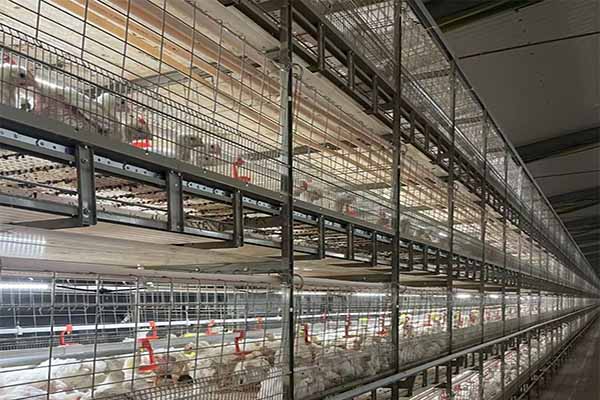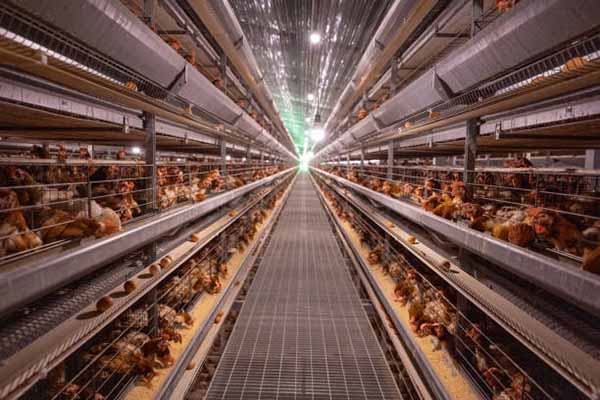How to Start a Chicken Farm in India: A Comprehensive Guide
Time : 2025-06-30
Starting a chicken farm in India can be a lucrative business venture, given the country’s large population and the growing demand for poultry products. This guide will help you navigate the process of setting up a chicken farm, from initial planning to operation, with a focus on professional practices and SEO optimization.
1. Understanding the Market and Regulations
Before you begin, it’s essential to understand the market for chicken farming in India and the legal regulations that govern it. Here’s a quick overview:
The Indian poultry market is growing, driven by factors like rising income levels, changing dietary preferences, and government initiatives to enhance food security. To ensure compliance, you must be aware of the following regulations:

- Animal Welfare Act: Ensure that your farm complies with the laws that protect animals from cruelty.
- Aquatic Life Conservation Act: If you use water for poultry purposes, be mindful of water conservation and pollution control.
- Bird Flu Control and Management: Adhere to protocols for disease prevention and control.
2. Selecting the Right Location
Choosing the right location is crucial for the success of your chicken farm. Consider the following factors:
– Accessibility: The farm should be easily accessible for both transportation of feed and products and for any necessary supplies.
– Water Source: Ensure a constant supply of clean water for the chickens.
– Climate: Opt for a location with a suitable climate that minimizes disease risk and maximizes producti on.
on.
– Space: Adequate space is necessary for raising chickens and storing feed and equipment.
3. Chicken Breed Selection
The breed of chicken you choose will significantly impact your farm’s productivity. Common breeds in India include:
- Broiler Chickens: Ideal for meat production, as they grow quickly.
- Laying Chickens: Best for egg production, known for high egg-laying rates.
- Hybrid Chickens: A cross between different breeds, offering a balance of qualities.
Research each breed’s characteristics, growth rate, feed conversion ratio, and egg-laying capacity to determine the best fit for your farm.
4. Building the Infrastructure
Professional infrastructure is crucial for a chicken farm. Here’s what you need to consider:
- Brooders and Grow-out Cages: Designed for the different stages of chicken growth, ensuring their comfort and health.
- Ventilation Systems: Essential for controlling temperature and humidity levels in the farm.
- Water and Feed Systems: Ensure a constant supply of clean water and quality feed.
- Lighting Systems: Optimize light levels for optimal growth and egg production.
Invest in quality, durable equipment from reputable suppliers to ensure long-term performance.
5. Feeding and Nutrition
Nutrition is key to the health and productivity of your chickens. Here’s what you should know:
- Feed Quality: Use high-quality feed that meets the nutritional requirements of your chickens.
- Feeding Schedules: Establish regular feeding schedules to ensure even distribution of feed.
- Water Availability: Ensure a constant supply of clean water, as it’s crucial for nutrient absorption.
Consider using feed additives and supplements to optimize growth, egg production, and overall health.
6. Health Management and Biosecurity
Preventing disease outbreaks is essential for a successful chicken farm. Here are some practices to consider:
- Vaccination: Administer vaccinations as recommended by a veterinarian to protect against common diseases.
- Sanitation: Regularly clean and disinfect the farm and equipment to minimize the spread of disease.
- Biosecurity Measures: Implement biosecurity protocols to prevent the introduction of diseases.
Work with a veterinarian to develop a health management plan tailored to your farm’s specific needs.
7. Marketing and Sales
Establishing a strong market presence is vital for your chicken farm’s success. Here’s how to do it:
- Target Market: Identify your target market and tailor your sales strategy accordingly.
- Quality Assurance: Offer quality products to build a reputation and attract customers.
- Marketing: Utilize traditional and digital marketing channels to reach a wider audience.
- Pricing Strategy: Develop a pricing strategy that ensures profitability while remaining competitive.
Building strong relationships with local retailers, restaurants, and food processors can also help expand your sales network.
8. Financial Planning and Sustainability
Effective financial management is crucial for the long-term sustainability of your chicken farm. Here’s what you need to consider:
- Budgeting: Create a detailed budget that includes all expected costs and revenue streams.
- Profit Margin: Set a profit margin that accounts for market demand, competition, and operational costs.
- Loan and Investment: Consider loans and investments to finance the startup and expansion of your farm.
- Insurance: Purchase insurance to protect your investment against unforeseen events.
Monitor your financial performance regularly to ensure your farm remains profitable and sustainable.
Conclusion
Starting a chicken farm in India requires careful planning, professional knowledge, and a commitment to quality. By following this guide and staying informed about market trends and legal regulations, you can increase your chances of success. Remember, consistency, innovation, and a focus on sustainability are key to the long-term viability o f your chicken farm.
f your chicken farm.











